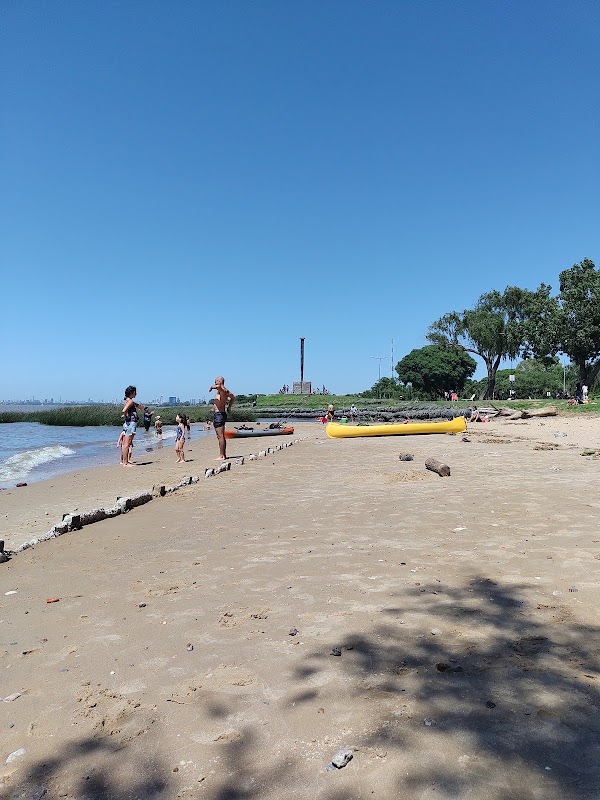
Experience the vibrant pulse of the Malabo Hip Hop Festival on Bioko Island, where beats, art, and community converge in an unforgettable celebration of culture. This dynamic urban adventure offers visitors a chance to immerse themselves in local music, dance, and cuisine amid the unique backdrop of Equatorial Guinea’s lively capital.
Choose Comfortable Footwear
Expect to spend extended periods standing and walking on uneven city pavements and festival grounds; sturdy, breathable shoes will keep you comfortable.
Stay Hydrated
The tropical heat and energetic atmosphere demand frequent hydration; bring a refillable water bottle to stay refreshed throughout the day.
Protect Against Sun Exposure
Sunscreen and a hat are vital during daylight hours to shield yourself from direct sun while exploring outdoor stages and markets.
Plan Transportation Ahead
Use local taxis or walk within the compact city center; coordinating pick-ups with your accommodation can avoid delays during busy festival periods.
Rhythms of Bioko: Experience the Malabo Hip Hop Festival
Malabo, the bustling capital of Equatorial Guinea located on the lush island of Bioko, transforms annually during the Malabo Hip Hop Festival into an electrifying canvas of beats, community, and vibrant expression. This festival, though modest in scale compared to global hip hop showcases, pulses with a raw energy that captivates locals and visitors alike, making it a must-see cultural event for adventurers seeking authentic urban experiences amidst an island escape.
The festival typically spans three days, weaving together performance stages scattered across Malabo’s key neighborhoods, each stage narrating its own story through rap battles, DJ sets, and breakdancing showcases. The air hums with bass lines that seem to echo the island’s untamed forests—a dialogue between nature’s rhythms and human creativity.
Participating or simply spectating, visitors can expect a diverse lineup highlighting local talents and invited artists from the broader Central African regions. Language flows between Spanish, Fang, and Pidgin English, each verse layered with social commentary, humor, and identity.
Beyond the music, the festival grounds create a practical social hub. Food vendors serve local dishes such as "sopa de pescado" and "mbuzi," fueling the crowd with flavors as rich as the beats reverberating through the streets. Artisan stalls sell hand-painted graffiti-inspired gear and memorabilia—pieces that celebrate hip hop culture while supporting local craftsmen.
Planning your visit requires some preparation. The festival usually occurs between late October and early November, when Bioko's dry season keeps the sky mostly clear, and humidity is manageable. Wear comfortable footwear—pavements and outdoor stages mean some uneven surfaces, and you’ll likely spend long hours on your feet.
Hydration is key: the island’s sun can press down steadily, and the contagious energy demands stamina. Carry a refillable water bottle and pack sunscreen despite the tropical breeze. Night performances extend well into the evening, so a light jacket might be necessary as temperatures drop after sunset.
Navigating around Malabo is straightforward. The compact city center allows easy access on foot or by short taxi rides; local guides or accommodation hosts can recommend the most vibrant spots during the festival days.
This festival is more than an event; it’s a bridge linking the island's heritage to a global culture, inviting every visitor to engage with Bioko’s fierce spirit, expressed in vocals, movement, and community. Whether you come as a hip hop enthusiast, a culture seeker, or an adventurous traveler, the Malabo Hip Hop Festival stakes a bold claim on your memory, challenging you to listen deeply and move freely.
Nearby Trips
All Adventures
Boat Charters
Water Activities
Adventures near Malabo, Bioko Island
Discover the unique and memorable adventures that make Malabo, Bioko Island special.
Frequently Asked Questions
When exactly does the Malabo Hip Hop Festival take place?
The festival is usually scheduled between late October and early November, aligning with the island’s drier season to minimize weather disruptions.
Is the festival family-friendly?
Yes, the event includes family-friendly times and activities, though some evening performances may be better suited to adults due to energy levels and crowd size.
Are festival events mostly indoors or outdoors?
The majority of performances and gatherings occur outdoors across open-air stages, parks, and street corners, immersing attendees in the city’s vibrant atmosphere.
What languages are used during performances?
Expect a rich mix of Spanish, Fang (local Bantu language), and Pidgin English, reflecting Malabo’s multicultural heritage.
Can visitors participate in hip hop workshops or activities?
Yes, the festival includes interactive sessions like breakdance lessons and freestyle battles where newcomers can engage with artists and locals.
What are some must-try local foods at the festival?
Don’t miss "sopa de pescado" (fish soup) and "mbuzi" (goat stew), staples that offer a hearty taste of Bioko Island’s culinary traditions.
Recommended Gear
Breathable Walking Shoes
Durable yet comfortable shoes protect against rough pavements and long standing periods.
Reusable Water Bottle
Vital for hydration amid tropical heat and energetic festival settings.
Lightweight Rain Jacket
Useful for sudden showers common during the festival season.
Compact Sunscreen
Protects skin during extended outdoor exposure across festival venues.
Local Insights
Hidden Gems
- "Sipopo Beach — a quieter coastline perfect for sunset views after festival days"
- "Malabo Botanical Gardens — serene plant collections away from city noise"
Wildlife
- "The island’s endemic Bioko drill monkeys can occasionally be spotted near forest edges within city limits"
- "Various tropical birds with colorful plumage animate the sky above festival venues"
History
"Malabo’s cultural roots trace back through colonial Spanish influences and indigenous Fang traditions, shaping its contemporary hip hop scene as a forum for social dialogue and cultural pride."
